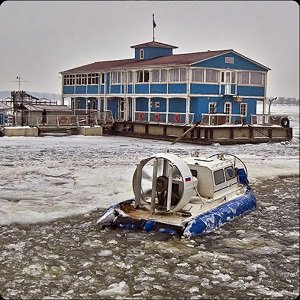
Mary's earliest years were happy, judging from the letters of William Godwin's housekeeper and nurse, Louisa Jones. Mary Godwin read these memoirs and her mother's books, and was brought up to cherish her mother's memory. However, because the Memoirs revealed Wollstonecraft's affairs and her illegitimate child, they were seen as shocking. A year after Wollstonecraft's death, Godwin published his Memoirs of the Author of A Vindication of the Rights of Woman (1798), which he intended as a sincere and compassionate tribute.

Godwin was left to bring up Mary, along with her older half-sister, Fanny Imlay, Wollstonecraft's child by the American speculator Gilbert Imlay. Wollstonecraft died of puerperal fever shortly after Mary was born. She was the second child of the feminist philosopher, educator, and writer Mary Wollstonecraft and the first child of the philosopher, novelist, and journalist William Godwin. Mary Shelley was born Mary Wollstonecraft Godwin in Somers Town, London, in 1797. Page from William Godwin's journal recording "Birth of Mary, 20 minutes after 11 at night" (left column, fourth row) This view was a direct challenge to the individualistic Romantic ethos promoted by Percy Shelley and the Enlightenment political theories articulated by her father, William Godwin. Shelley's works often argue that cooperation and sympathy, particularly as practised by women in the family, were the ways to reform civil society. Studies of her lesser-known works, such as the travel book Rambles in Germany and Italy (1844) and the biographical articles for Dionysius Lardner's Cabinet Cyclopaedia (1829–1846), support the growing view that Shelley remained a political radical throughout her life. Scholars have shown increasing interest in her literary output, particularly in her novels, which include the historical novels Valperga (1823) and Perkin Warbeck (1830), the apocalyptic novel The Last Man (1826) and her final two novels, Lodore (1835) and Falkner (1837). Recent scholarship has yielded a more comprehensive view of Shelley's achievements. Until the 1970s, Shelley was known mainly for her efforts to publish her husband's works and for her novel Frankenstein, which remains widely read and has inspired many theatrical and film adaptations. The last decade of her life was dogged by illness, most likely caused by the brain tumour which killed her at age 53.
#Paradise lost river crossword clue professional#
A year later, Shelley returned to England and from then on devoted herself to the upbringing of her son and a career as a professional author. In 1822, her husband drowned when his sailing boat sank during a storm near Viareggio. The Shelleys left Britain in 1818 for Italy, where their second and third children died before Shelley gave birth to her last and only surviving child, Percy Florence Shelley. In 1816, the couple and Mary's stepsister famously spent a summer with Lord Byron and John William Polidori near Geneva, Switzerland, where Shelley conceived the idea for her novel Frankenstein. They married in late 1816, after the suicide of Percy Shelley's first wife, Harriet. Over the next two years, she and Percy faced ostracism, constant debt and the death of their prematurely born daughter. Upon their return to England, Mary was pregnant with Percy's child. Together with her stepsister, Claire Clairmont, she and Percy left for France and travelled through Europe. In 1814, Mary began a romance with one of her father's political followers, Percy Bysshe Shelley, who was already married.

When she was four, her father married a neighbour, Mary Jane Clairmont, with whom Mary came to have a troubled relationship. She was raised by her father, who provided her with a rich if informal education, encouraging her to adhere to his own anarchist political theories. Mary's mother died 11 days after giving birth to her. Her father was the political philosopher William Godwin and her mother was the philosopher and women's rights advocate Mary Wollstonecraft. She also edited and promoted the works of her husband, the Romantic poet and philosopher Percy Bysshe Shelley. Mary Wollstonecraft Shelley ( UK: / ˈ w ʊ l s t ən k r ɑː f t/ née Godwin 30 August 1797 – 1 February 1851) was an English novelist who wrote the Gothic novel Frankenstein or, The Modern Prometheus (1818), which is considered an early example of science fiction and one of her best-known works.



 0 kommentar(er)
0 kommentar(er)
